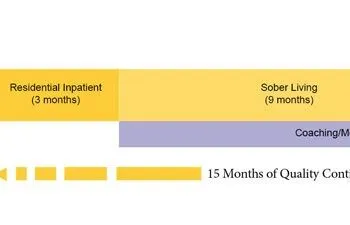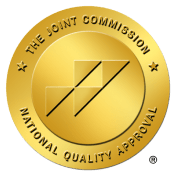Drug and Alcohol Detox
- Medically-Assisted detox in Austin and Houston, TX
What Is Detox?
Detoxification (commonly referred to as detox) is often the first step in an addiction treatment plan, especially for certain substances such as alcohol or heroin.
Detox is the process by which the body rids itself of drugs or alcohol when someone discontinues substance abuse.
Our detox centers are available to help people get through this process safely and successfully, and a carefully planned approach to this process promotes overall addiction recovery.

What is Withdrawal?
Withdrawal from drugs or alcohol can be a painful and stressful process. As you develop a pattern of regular substance abuse, the chemistry of your brain is altered. Neurons and hormones are affected by substance abuse.
Once the addictive substances are no longer present, your body’s chemistry balance is thrown into confusion.
These alterations can progress to a point where receptors in the brain stop functioning correctly.
The resulting neurochemical reactions that happen during withdrawal cause adverse physical symptoms.
Withdrawal effects can include:
- Hyperactivity
- Brain receptor alterations
- Elevated hormone levels
- Increased/unstable blood pressure
- Profuse sweating
- Tremors
- Severe nausea
- Physical pain
People who attempt to detox alone at home often return to using drugs or alcohol to relieve the discomfort, which is why detoxing in a facility is helpful. Experienced medical staff can help relieve your discomfort by administering medications in an inpatient setting.
Detox by itself is not treatment; it’s just the first step. Individuals who do not receive any further treatment after detox usually resume drug use because it does not address the psychological, social and behavioral problems associated with addiction. If detox is not followed by therapy, it will not usually produce the long-lasting behavioral changes necessary for recovery.
Detox should be followed by a formal assessment and referral to some type of drug addiction treatment. Programs on a residential inpatient, intensive outpatient or supportive outpatient basis are most effective in helping people stay sober after detoxifying. Maintenance medications may also be prescribed for individuals in addiction treatment, helping to relieve any long-term withdrawal symptoms, alleviate cravings and block the effects of alcohol and illicit drug use.

What is Medically Assisted Drug and Alcohol Detox?
Withdrawal is often unpleasant, but quitting certain substances such as alcohol or benzodiazepines can be dangerous or even deadly.
If you are addicted to these substances, the best—and safest—course of action is to go through a medically assisted detox. In medically assisted detox medical personnel supervise patients around the clock.
Depending on the nature of your addiction, detox staff may administer medications that ease withdrawal symptoms and control cravings.
Some of these medications mimic the effects of the substance on the body in order to prevent withdrawal and are administered in gradually decreasing doses.
What Happens During Detox?

Detox is not a one-size-fits-all program. At a high-quality detox center, the process begins with a conversation between you and detox experts who help you understand what to expect during detox.
Detox is designed to help you rest, heal, and recover from drug and alcohol addiction. As you are weaned off the drugs and your body is gradually restored to its original balance, you will need time to process the physical and psychological changes.
A professional detox program provides medical supervision in a safe, sober, and supportive environment so you can have the best opportunity for sustained sobriety.
Most often, clients are asked to disconnect from their typical daily routine to complete detox. This means personal cell phones, laptops, and other internet-capable devices are not allowed. However, there are exceptions, as disconnecting completely is not always possible.
Some clients like business executives, politicians, lawyers, or CEOs may need to complete detox while maintaining their professional responsibilities. In these instances, an Executive Detox program can provide effective detox treatment with deluxe amenities, enhanced privacy and discretion, and the ability to access a personal cell phone and computer while detoxing.
Whether you enroll in a traditional detox program or executive detox, a few things will remain the same. After you check in and complete paperwork, you’ll be assigned to a room. During your stay, you’ll frequently meet with your treatment counselors and medical staff, and you’ll be given plenty of time to rest while your body adjusts to functioning without substances. The detox process can vary and is tailored to each person’s individual situation.
The three steps of a medical detox process

1 . Evaluation
First, you are tested to see which substances are present in the body and in what quantities. The medical staff also examines you for any co-existing physical disorders and mental health issues.

2 . Stabilization
First, you are tested to see which substances are present in the body and in what quantities. The medical staff also examines you for any co-existing physical disorders and mental health issues.

3 . Guidance into treatment
First, you are tested to see which substances are present in the body and in what quantities. The medical staff also examines you for any co-existing physical disorders and mental health issues.
What Happens During Detox?

Detox is not a one-size-fits-all program. At a high-quality detox center, the process begins with a conversation between you and detox experts who help you understand what to expect during detox.
Detox is designed to help you rest, heal, and recover from drug and alcohol addiction. As you are weaned off the drugs and your body is gradually restored to its original balance, you will need time to process the physical and psychological changes.
A professional detox program provides medical supervision in a safe, sober, and supportive environment so you can have the best opportunity for sustained sobriety.
Most often, clients are asked to disconnect from their typical daily routine to complete detox. This means personal cell phones, laptops, and other internet-capable devices are not allowed. However, there are exceptions, as disconnecting completely is not always possible.
Some clients like business executives, politicians, lawyers, or CEOs may need to complete detox while maintaining their professional responsibilities. In these instances, an Executive Detox program can provide effective detox treatment with deluxe amenities, enhanced privacy and discretion, and the ability to access a personal cell phone and computer while detoxing.
Whether you enroll in a traditional detox program or executive detox, a few things will remain the same. After you check in and complete paperwork, you’ll be assigned to a room. During your stay, you’ll frequently meet with your treatment counselors and medical staff, and you’ll be given plenty of time to rest while your body adjusts to functioning without substances. The detox process can vary and is tailored to each person’s individual situation.
The three steps of a medical detox process

1 . Evaluation
First, you are tested to see which substances are present in the body and in what quantities. The medical staff also examines you for any co-existing physical disorders and mental health issues.

2 . Stabilization
First, you are tested to see which substances are present in the body and in what quantities. The medical staff also examines you for any co-existing physical disorders and mental health issues.

3 . Guidance into treatment
First, you are tested to see which substances are present in the body and in what quantities. The medical staff also examines you for any co-existing physical disorders and mental health issues.
Do I need Detox?
Whether you would benefit from detox before beginning therapy depends on several factors, including the length and intensity of your addiction, the substances you use and your most recent usage. The only way to find out whether you need detox is to get a personalized assessment from an addiction specialist.
If you’re unsure whether you need detox, contact Nova Recovery Center today. Our compassionate admissions advisers can help you determine how best to proceed in your journey to recovery.



Drug & Alcohol Detox Assessment Form
Where Can I get Detox?
Not all rehab centers offer detox facilities, and not all detox centers offer medical assistance. It’s important to find a center that suits your particular needs. Nova offers detox services at two facilities.
Continuum of Care
We offer a 15-month continuum of care program that is designed to guide you through each step of your recovery journey. This journey full of healing, hope, and peer support will start with residential treatment and end with your transition back into society.
Supportive Outpatient
Our supportive outpatient program helps you develop a vision for your life and work to achieve your sobriety goals with relapse prevention techniques, career, and educational support.
The Admissions Process
At Nova Recovery Center, we offer a simple admissions process to make your first steps on the road to recovery as easy as possible. We accept admissions 365 days a year, and it all starts with a confidential phone call.
During that initial call, a member of the Nova team will gather information to ensure that you can get what you need from our program and answer any questions you may have.
How Much Does Detox Cost?
Nova Recovery Center offers quality outpatient addiction treatment, drug rehab in Austin Texas and peer recovery support services at an affordable price. We work with most insurance companies to help supplement the treatment costs.
What Comes After Detox?

During these sessions, you’ll also spend some time working with a member of our professional team to explore various employment and educational options. We will help you build your resume, provide tips and techniques for interviewing, and help you locate potential job opportunities.
In addition, we will assist you asMedical detoxification isn’t a stand-alone treatment for addiction, and appropriate follow-up therapy is needed to maintain sobriety. Relying on detox alone will likely result in an eventual relapse. Once the body has rid itself of addictive substances, then counseling, therapy, nutrition and aftercare services help achieve sustained sobriety for the long-term.
Residential treatment after detox is the safest and most effective choice to remain substance-free. In a residential treatment program, you will reside at the center during treatment.

This is the most effective option because, at first, the psychological cravings and resistance to sobriety will be at their greatest levels. Residential treatment allows for monitoring around the clock where medications and therapies can be administered to relieve any anxiety and agitation.
Long-term residential treatment consists of a daily schedule of therapy and medications to stabilize you. This increases your odds of maintaining sobriety without relapsing. Aftercare services assist in the transition from residential treatment to daily living with the help of outpatient rehab.
Using a comprehensive course of treatment that includes detox, inpatient services, outpatient, sober living, and aftercare program will give you the tools you need to live a rewarding and sober life.
We Accept Many Insurances
FAQ – Drug and Alcohol Detox
Your Path to a Safe and Comfortable Recovery
What are the signs that I need drug and alcohol detox?
If you experience withdrawal symptoms when you stop using drugs or alcohol, it may be a sign you need detox. Common signs include:
Shaking or tremors
Anxiety or depression
Nausea and vomiting
Sweating or chills
Cravings for substances
Trouble sleeping
Detox can help manage these symptoms safely and reduce the risk of complications.
How long does drug and alcohol detox take?
The length of detox varies depending on the substance used, how long you’ve been using, and your overall health. On average, detox can last between 3 to 7 days. Severe cases might require longer stays to ensure complete stabilization. A professional assessment can provide a more accurate timeline based on your unique situation.
Is drug and alcohol detox painful?
While detox can be uncomfortable, medical detox centers provide medication and support to ease withdrawal symptoms. Medical professionals monitor your condition and adjust treatment to keep you as comfortable as possible. Seeking professional detox can significantly reduce discomfort compared to attempting detox at home.
Can I detox from drugs and alcohol at home?
Detoxing at home can be dangerous, especially for substances like alcohol, benzodiazepines, or opioids, which can cause life-threatening withdrawal symptoms. Medical detox provides a safe environment with experienced professionals who can intervene if complications arise. For your safety, it’s recommended to detox under medical supervision.
What happens after drug and alcohol detox?
Detox is the first step in the recovery journey. After detox, continuing care through residential treatment, outpatient programs, or therapy is essential for long-term sobriety. Detox addresses the physical aspect of addiction, while follow-up care focuses on the emotional, psychological, and behavioral components.
What is medical detox, and how does it work?
Medical detox is the first step in overcoming drug or alcohol addiction. It involves safely removing substances from the body under the supervision of medical professionals. During detox, medications may be provided to manage withdrawal symptoms, reduce cravings, and ensure your safety. Our experienced team monitors your progress 24/7, ensuring you are as comfortable as possible.
Why it matters: Medical detox helps minimize health risks associated with withdrawal, providing a solid foundation for long-term recovery.
How do I know if I need drug or alcohol detox?
You may need detox if you:
Experience withdrawal symptoms (shaking, sweating, nausea) when not using substances
Find it difficult to stop using drugs or alcohol on your own
Need to consume larger amounts to feel the same effects (increased tolerance)
Have experienced health issues, anxiety, or depression linked to substance use
If any of these signs apply to you, a professional detox program can provide the support you need to start your recovery journey.
Is drug and alcohol detox safe?
Yes, medical detox is safe when conducted in a professional treatment center. Detoxing at home can be dangerous and, in some cases, life-threatening. At our facility, medical staff are trained to handle complications, administer medications, and ensure you are stable throughout the process. Safety is our top priority.
How long does drug or alcohol detox take?
The length of detox varies depending on:
The type of substance used
The duration and frequency of use
Your overall health
Typically, detox lasts between 3 to 7 days. Some individuals may require longer stays for more severe addictions. After detox, continuing care is essential to address the underlying causes of addiction and prevent relapse.
What happens after detox?
Detox is the first step, but ongoing treatment is crucial for lasting sobriety. After detox, we recommend transitioning into residential treatment, PHP (Partial Hospitalization Programs), IOP (Intensive Outpatient Programs), or sober living to continue your recovery journey.
These programs focus on:
Therapy and counseling
Relapse prevention skills
Emotional and psychological healing
Our team will work with you to create a customized aftercare plan to support your long-term success.
Ready to take the first step? Contact us today to learn more about our drug and alcohol detox programs and start your path to recovery.
Drug and Alcohol Detox Assessment Form
The following questionnaire is a brief assessment that is designed to determine whether you may have developed an addiction to antidepressant drugs, such as Celexa, Cymbalta, Wellbutrin, Zoloft, Prozac, or others. All the answers you provide are completely confidential and anonymous.
Schedule a call with us
Nova Recovery Center is dedicated to helping you or your loved one get help. Please call or fill out this form for a confidential consultation. One of our understanding, dedicated advisors will contact you about your options. Begin healing today.


